Best mid-range phones in Australia
UPDATE: Realme has entered the mid-range battle with the incredibly impressive X3 SuperZoom, boasting premium-level specs and an impressive quad camera. Find out more about it on Page 5.
Premium phones have advanced at an accelerated pace over the last couple of years, with many flagship handsets adopting the kinds of features that wouldn't seem out of place in a science fiction novel.
Wireless power sharing, in-display fingerprint scanners, encrypted Face-ID functionality, higher-end OLED displays, advanced multi-camera setups (some with as many as six sensors) and 5G network capability are all undoubtedly impressive features, but they've also helped to raise the cost of premium smartphones dramatically.
Apple's iPhone 11 Pro Max is a powerhouse device and one of the best phones you can buy in 2020, but a top-end model will set you back AU$2,499. For many, phones in this price range will be prohibitively expensive.
Thankfully, the rising cost of premium handsets has led to the creation of a category that can now be considered the new 'mid-range'. Even well-known manufacturers like Apple, Samsung and Google have started to offer terrific phones that boast a number of flagship-level features at a much more reasonable price point.
We've taken the liberty of rounding up some terrific handsets that fit within the new mid-range category, which we'd consider to be anywhere between AU$600 and AU$1,050. Here are the best mid-range phones in Australia for 2020.
- Best phones in Australia 2020
- Best cheap smartphones in Australia for 2020
- Best Android phones in Australia for 2020
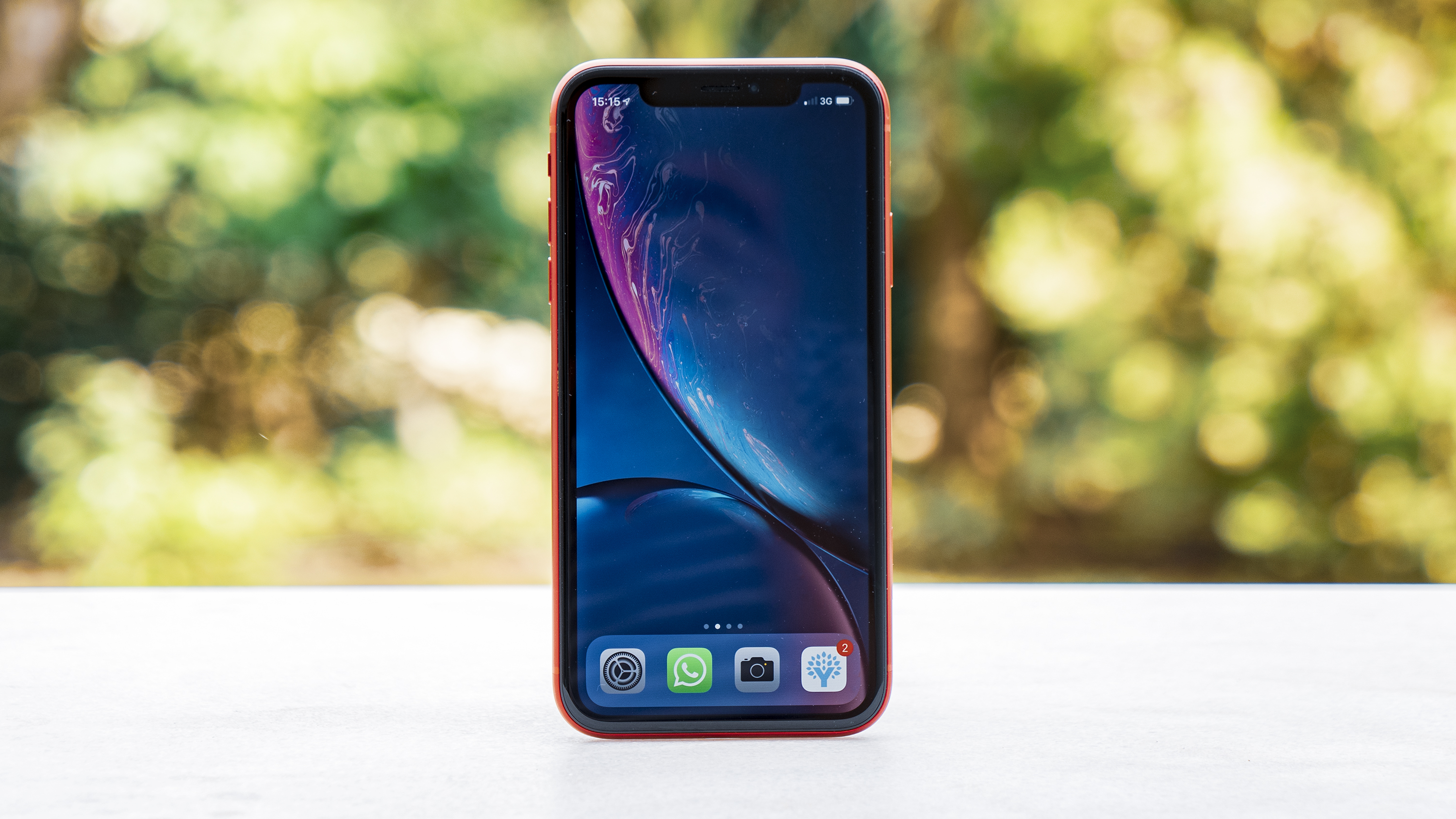
1. Apple iPhone XR
The full iPhone experience without the exorbitant cost
Weight: 194g | Dimensions: 150.9 x 75.7 x 8.3mm | CPU: Apple A12 Bionic | RAM: 3GB | Storage: 64GB/128GB/256GB | Battery: 2,942mAh | Rear camera: 12MP | Front camera: 7MP + ToF
For many Apple fans, the rising cost of the Cupertino company's premium iPhones has made it harder to justify upgrading on a regular basis. But what if there was a cheaper iPhone option that offered the same updated chipset as its more expensive siblings while dialling back on other extravagances?
Enter the iPhone XR – a more affordable Apple smartphone that's gotten even cheaper since the announcement of its successor, the iPhone 11. Sure, there are better models available now, but the iPhone XR still packs the same A12 Bionic chip that powers the exceptional iPhone XS and XS Max, which is pretty darn impressive for just over a thousand bucks.
Of course, there are a couple of downsides. For one, iPhone XR only sports a single camera on its rear, which is rare in this day and age. Thankfully, it still takes great photos and can even pull off impressive blurred backgrounds in Portrait mode.
Additionally, the iPhone XR sports a fairly low-res LCD display, rather than the beautiful OLED screen thats adorn higher-end iPhone models. It's still quite bright, and Apple's unmistakable notch design at least makes the display look quite modern when glanced at.
Still, if you can overlook those issues, the iPhone XR is a terrific option for those who want to remain in Apple's eco-system without spending an absolute fortune on top-end models.
Read our iPhone XR review
See the best iPhone XR outright deals here
See the best iPhone XR telco plans here
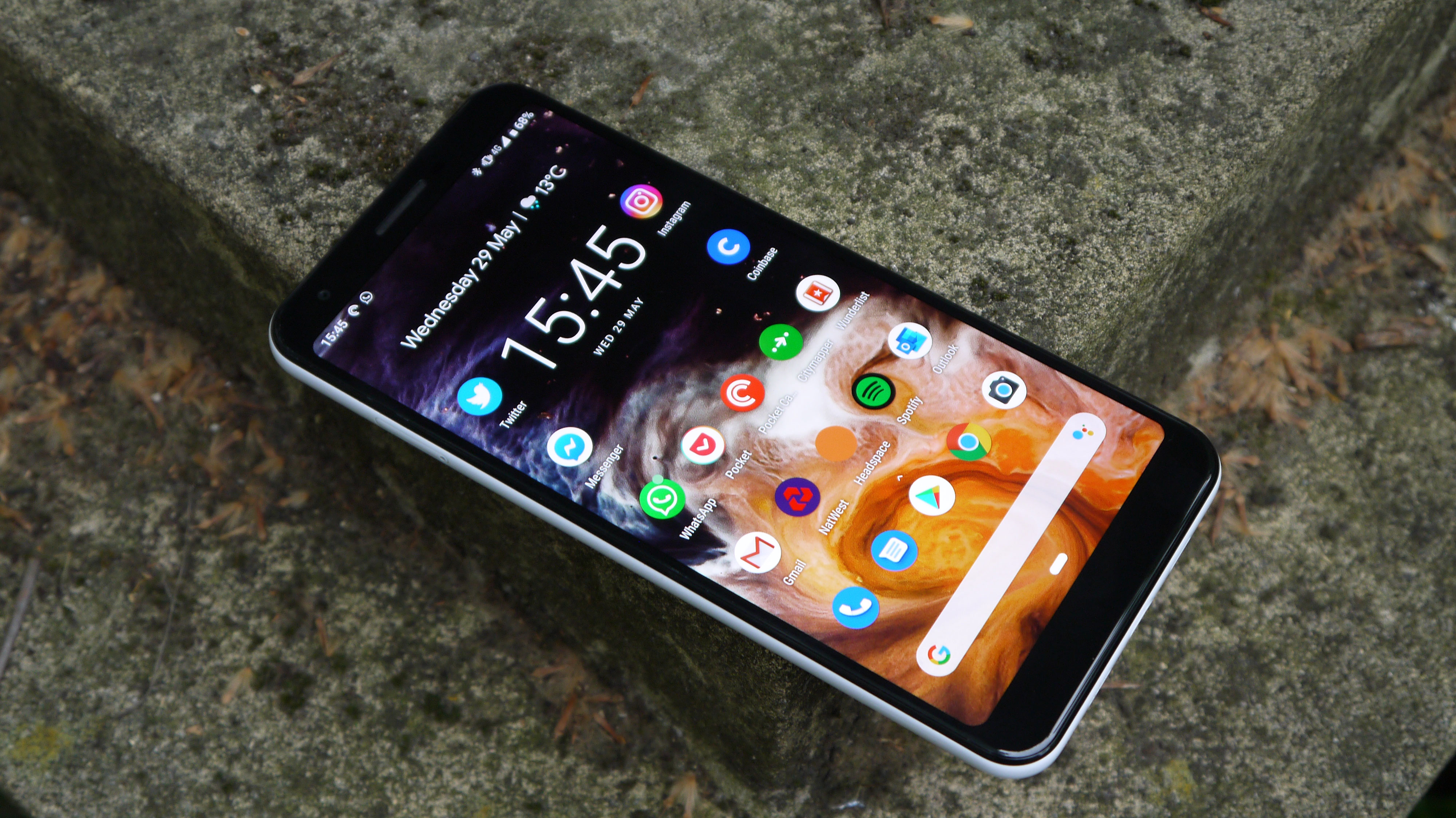
2. Google Pixel 3a XL
A real winner in the mid-range phone market
Weight: 167g | Dimensions: 160.1 x 76.1 x 8.2mm | OS: Android 9.0 (update to Android 10) | Screen size: 6-inch | Resolution: 1080 x 2160 | CPU: Snapdragon 670 | RAM: 4GB | Storage: 64GB | Battery: 3,700mAh | Rear camera: 12.2MP | Front camera: 8MP
Google's Pixel 3 range is known for boasting fantastic cameras, and thankfully, that photographic prowess carries over to the much cheaper Pixel 3a XL. In terms of design, it even improves on the premium Pixel 3 XL in a couple of (albeit minor) ways.
For starters, the Pixel 3a XL lacks the enormous notch that's present on its flagship siblings. Instead, It's got a standard bezel along the top of the display that we think looks more elegant.
Speaking of the Pixel 3a XL's display, we were pleased to find that Google went for a beautiful Full HD+ OLED screen on the device, and while that is a lower resolution that the Quad HD+ sporting flagship models, the difference in quality is barely noticeable unless you're really looking for it.
You'll also find that unlike the Pixel 3 and 3XL, the 3a XL actually sports a 3.5mm headphone jack – a feature that's a real crowdpleaser but which doesn't get a lot of love from smartphone manufacturers these days.
Of course, Google did have to make some concessions in regards to the Google 3a XL's chipset, implementing a Snapdragon 670 processor in order to keep costs down. Thankfully, the handset still feels fast and responsive, which probably has a lot to do with the bloat-free stock version of Android 9 Pie that's installed on it out of the box.
Read our Google Pixel 3a XL review
See the best Google Pixel 3a XL outright deals here
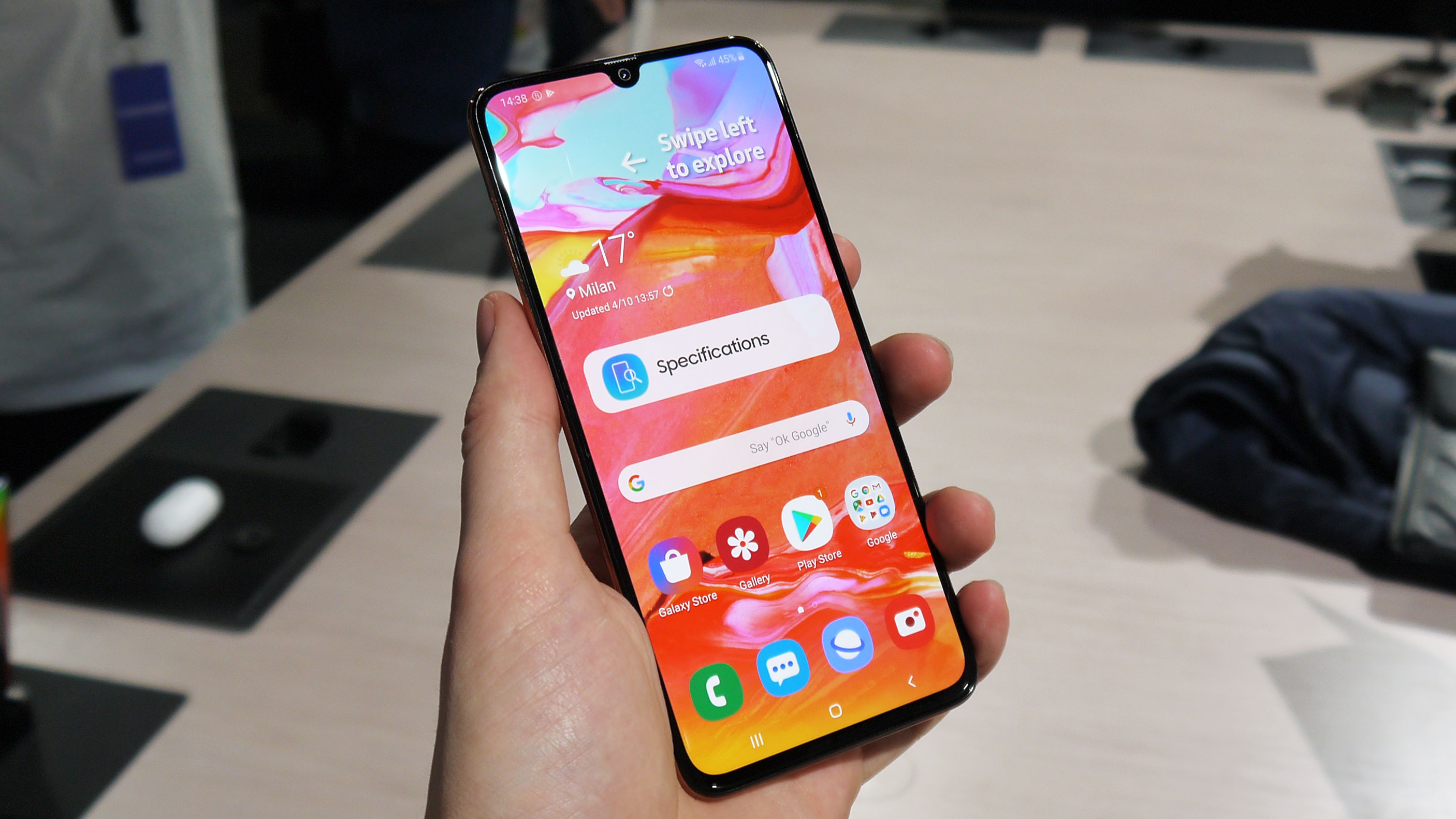
3. Samsung Galaxy A70
Great design and awesome battery life
Weight: 183g | Dimensions: 164.3 x 76.7 x 7.9mm | OS: Android 9 | Screen size: 6.7-inch | Resolution: 1080 x 2270 | CPU: Octa-core Snapdragon 675 | RAM: 6GB | Storage: 128GB | Battery: 4,500mAh | Rear camera: 32MP + 8MP + 5MP | Front camera: 32MP
With its beautful 6.7-inch Super AMOLED display and minimal teardrop notch, it would be easy to mistake the Samsung Galaxy A70 for a top-end phone at first glance. And, when you factor in flagship features like an in-display fingerprint scanner and a robust rear-mounted triple camera setup with ultra-wide lens, the distinction between mid-range and premium becomes even harder to detect.
Of course, its mid-range status does become more apparent as soon as you pick up the phone, if only because its plastic body feels lighter than its size would suggest.
Internally, it's got a Snapdragon 675 chipset running things, along with 8GB of RAM (double that of the Pixel 3a XL), granting it significantly more horsepower than Google's mid-ranger. It's also got an enormous 4,500mAh battery, which should last you well into the next day.
When it comes to the Galaxy A70's photographic capabilities, the device can be a bit of a mixed bag. The phone's triple-camera layout can be responsible for some terrific photos, particularly from its 32MP primary sensor.
That said, its ultra-wide sensor sports half the megapixels of the one featured in the flagship Galaxy S10, and the difference in quality is immediately apparent when looked at side-by-side.
But really, what can you expect from a smartphone that's roughly half the price of its premium cousin? The fact that it has an ultra-wide sensor at all is something to be celebrated, particularly at such an affordable price range.
On the flip side, Samsung has delivered a show-stopping 32MP front-facing camera, which may well be the feature that seals the deal for selfie-loving users.
Read our Samsung Galaxy A70 hands on review
See the best Samsung Galaxy A70 outright deals here
See the best Samsung Galaxy A70 plans here
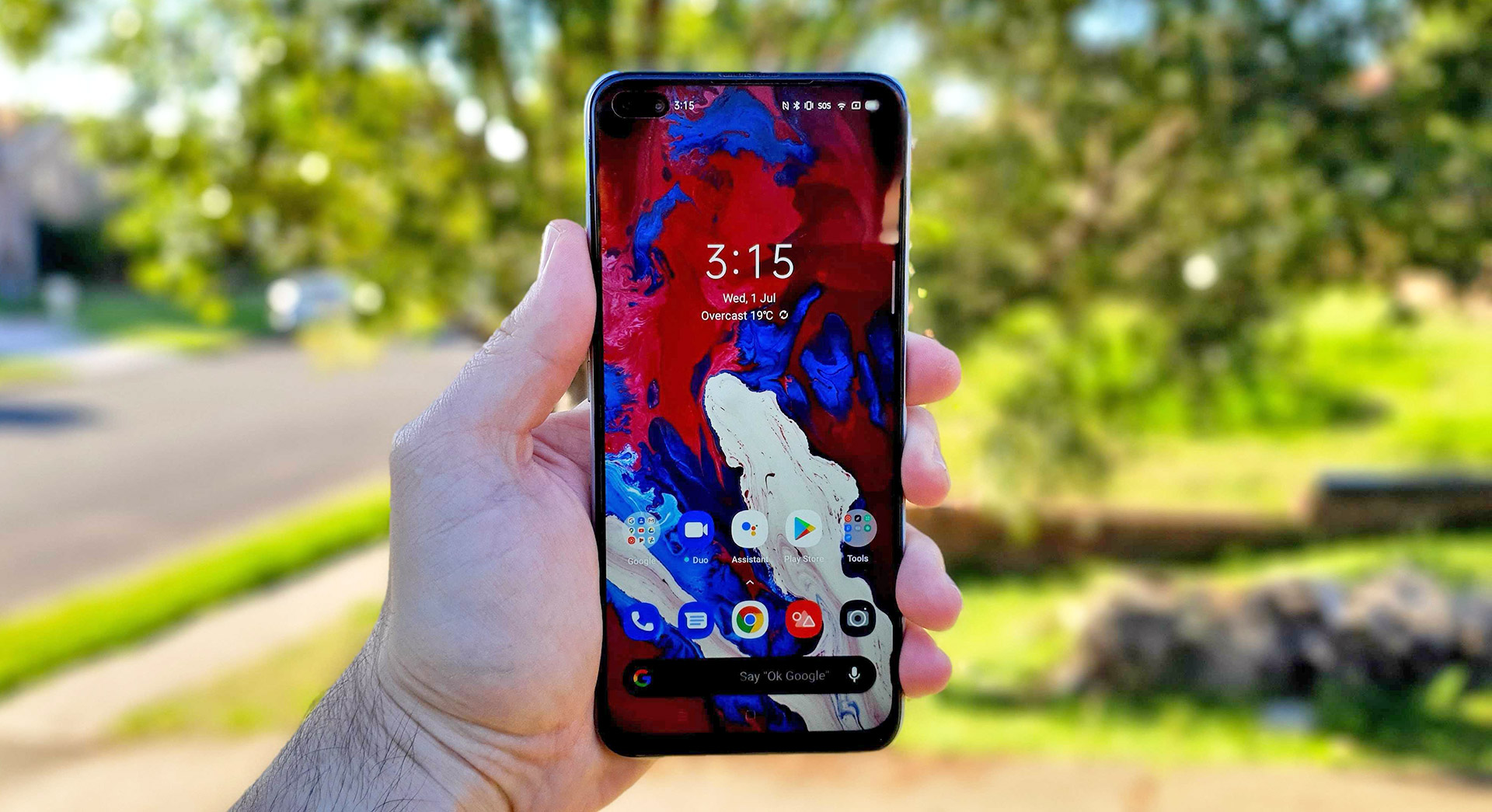
4. Realme X3 SuperZoom
The best Realme phone available in Australia
Weight: 202g | Dimensions: 163.8 x 75.8 x 8.9mm | OS: Android 10 | Screen size: 6.6-inch | Resolution: 1080 x 2400 | CPU: Snapdragon 855+ (7 nm) | RAM: 8GB/12GB | Storage: 128GB/256GB | Battery: 4,200mAh | Rear camera: 64MP + 8MP + 8MP + 2MP | Front camera: 32MP
Despite the Realme X3 SuperZoom's mid-range price point, the manufacturer's latest smartphone on the Australian market boasts specs that would be perfectly at home on a premium flagship handset.
We're talking a Snapdragon 855+ chipset (the same featured in US models of Samsung's Galaxy S10 range and in Google's Pixel 4 lineup), up to an astonishing 12GB of RAM, onboard storage up to 256GB, a quad camera with a 64MP primary sensor... all for the max price of AU$799. Feel free to take a moment to let that information sink in.
Additionally, you have a 1080p LCD display with a 120Hz refresh rate – a feature that's only now becoming commonplace amongst flagship smartphones. This allows for silky smooth scrolling and gameplay, and unlike some other handsets on the market, the X3 SuperZoom can automatically switch between 60Hz and 120Hz where appropriate in order to conserve battery.
Speaking of battery life, the Realme X3 SuperZoom has a lot of it, with a 4,200mAh capacity that will last you well into the next day – even with the 120Hz mode on at all times.
In terms of its camera, the Realme X3 SuperZoom offers quite a bit of variety, with the aforementioned 64MP primary sensor being the clear standout. As the handset's name would suggest, the SuperZoom has a periscope telephoto lens that's capable of 5x optical zoom without distortion, and 60x hybrid zoom that makes Monet's Water Lillies look Ultra HD by comparison. Oh well, at this price point it's the thought that counts.
As for its remaining sensors, the X3 also offers an 8MP ultra-wide camera, which admittedly struggles a little when it comes to capturing fine detail, and a 2MP macro lens that's surprisingly good for up-close photography.
Performance-wise, the Realme X3 SuperZoom is an absolutely winner. Running Android 10 out of the box, the device feels consistently fast and responsive during navigation and gameplay. If you're after a powerful device with a good camera and a smooth gaming-focused display, you're unlikely to find better value for money than Realme's X3 SuperZoom.
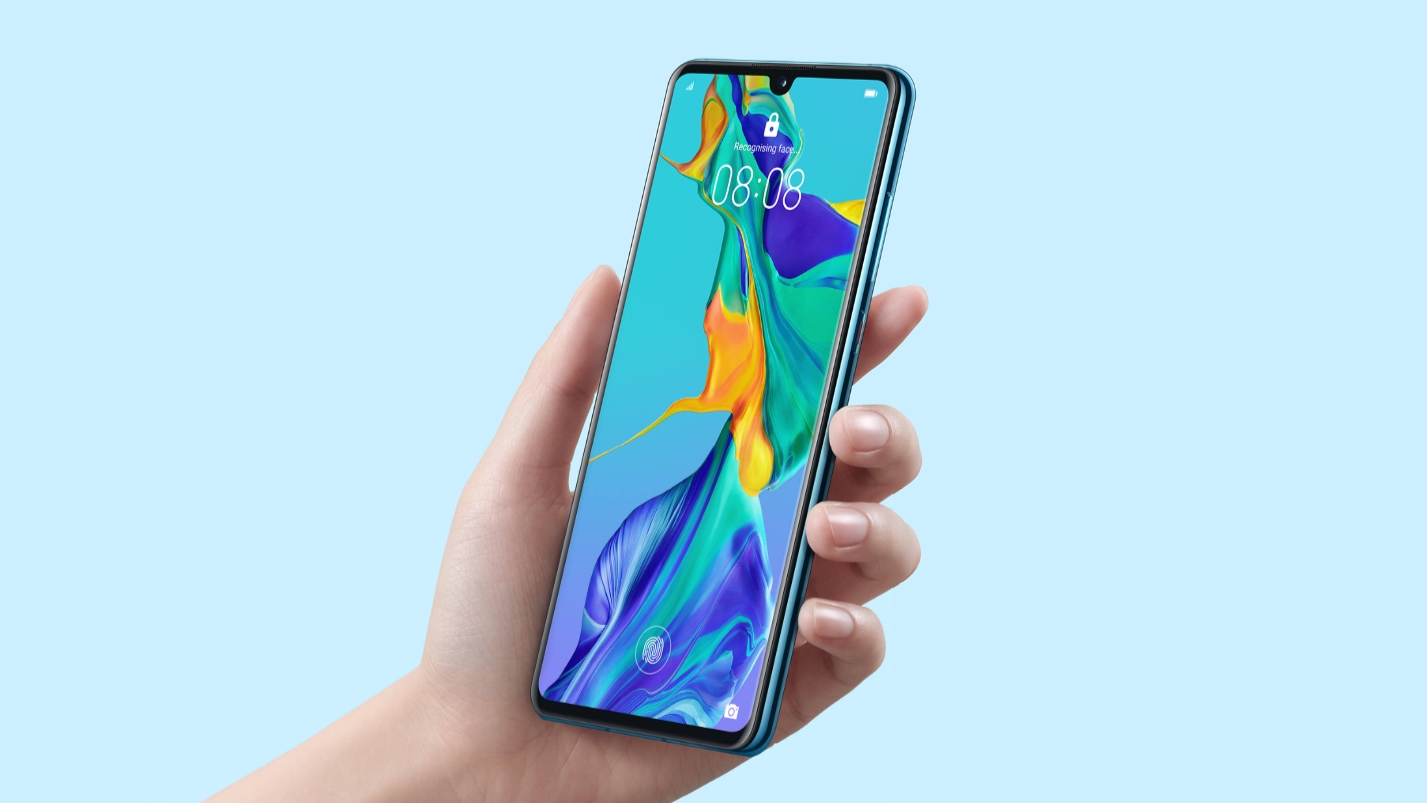
5. Huawei P30
An honest-to-goodness flagship at a mid-range price
Weight: 165g | Dimensions: 149.1 x 71.4 x 7.6mm | OS: Android 9.0 | Screen size: 6.1-inch | Resolution: 1080 x 2340 | CPU: Kirin 980 | RAM: 6GB | Storage: 128GB | Battery: 3,650mAh | Rear camera: 40MP + 16MP + 8MP | Front camera: 32MP
Even taking Huawei's recent troubles with US trade bans into account, the P30 is still an absolutely fantastic phone and may very well be the last smartphone the Chinese phone maker releases with access to Googles apps and services... for some time at least.
Still considered a flagship phone, the Huawei P30's price has come down to the point where it now sits alongside the other upper mid-range devices on this list, making it a real steal for those who don't mind the possibility of being limited to Android 9 for the remainder of the phone's lifetime (an Android 10 update was rumoured in September, but it's release is as yet unconfirmed).
It's rear snapper is a Leica-powered triple camera 40MP (main) + 16MP (ultra-wide) + 8MP (telephoto) setup which is capable of absolutely breathtaking photography. We're also big fans of the phone's 3.5mm headphone jack (a rarity in this day and age) and in-display fingerprint scanner.
Additionally, the device boasts a gorgeous 6.1-inch 1080p OLED display and sizeable 3,650mAh battery, which should get you through a day and a half of usage with no problems. If you can overlook Huawei's current troubles, the P30 is more than up to the task of carrying out your daily needs.
Read our Huawei P30 review
See the best Huawei P30 outright deals here
See the best Huawei P30 plans here
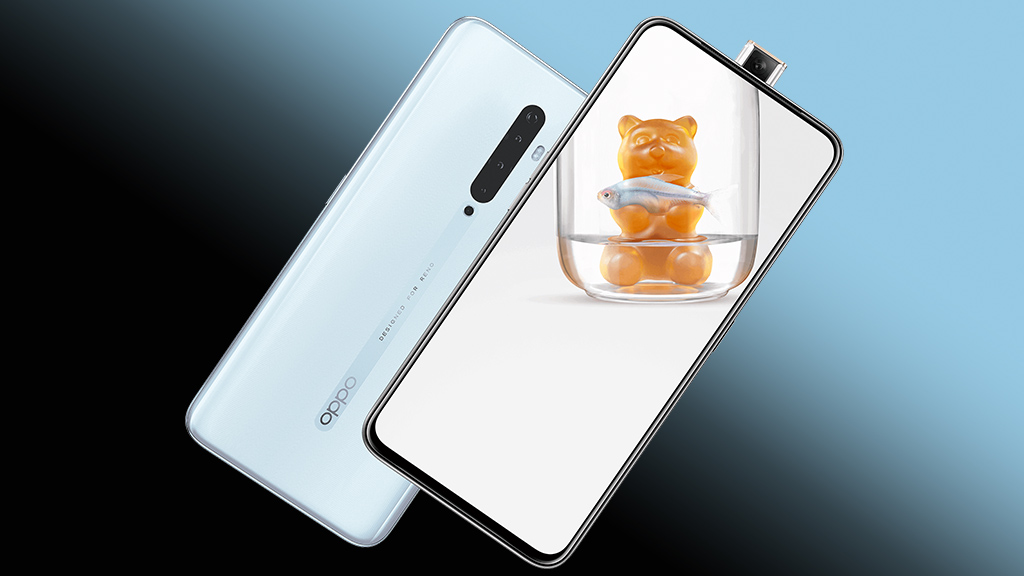
6. Oppo Reno 2 Z
Exceptional value from Oppo
Weight: 195g | Dimensions: 162.4 x 75.8 x 8.7mm | OS: Android 9.0 | Screen size: 6.53-inch | Resolution: 1080 x 2340 | CPU: Mediatek MT6779 Helio P90 | RAM: 8GB | Storage: 128GB (microSD up to 256GB) | Battery: 4,000mAh | Rear camera: 48MP + 8MP + 2MP + 2MP | Front camera: 16MP
You have to hand it to Oppo – even when it comes to its budget and mid-range offerings, the Chinese smartphone manufacturer always manages to deliver premium features and a gorgeous design.
Both things are immediately apparent in regards to the Oppo Reno 2 Z, a phone that offers a stunning all-screen design (no notches or cutouts here), an impressive quad camera on its rear and a sturdy aluminium build.
Thanks to the practically non-existent bezels on its aforementioned screen, the Reno 2 Z provides a totally uninterrupted 6.53-inch FHD+ AMOLED display to view media on – perfect for watching movies and scrolling through pictures you've taken.
Speaking of photography, the Reno 2 Z offers a terrific quad camera array on its rear with most of the heavy lifting done by a mighty 48MP main camera, with an 8MP ultra-wide lens and 2MP monochrome and depth sensors to round out the package.
That all-screen design we mentioned earlier? That's only possible due to the inclusion of a very nifty front-facing pop-up camera, which'll only show itself when you choose to take a selfie.
Unlike the Oppo Find X's implementation, which saw the camera pop up to scan your face every time you unlocked your phone, the Reno 2 Z uses an under-display fingerprint scanner for security – this should relieve a lot of the burden placed on the device's pop-up motor in the long run.
Admittedly, we'd have liked a more powerful chipset and GPU in the Oppo Reno 2 Z, but given its premium features and design, the phone is still terrific value for money.
See the best Oppo Reno 2 Z outright deals here
See the best Oppo Reno 2 Z plans here
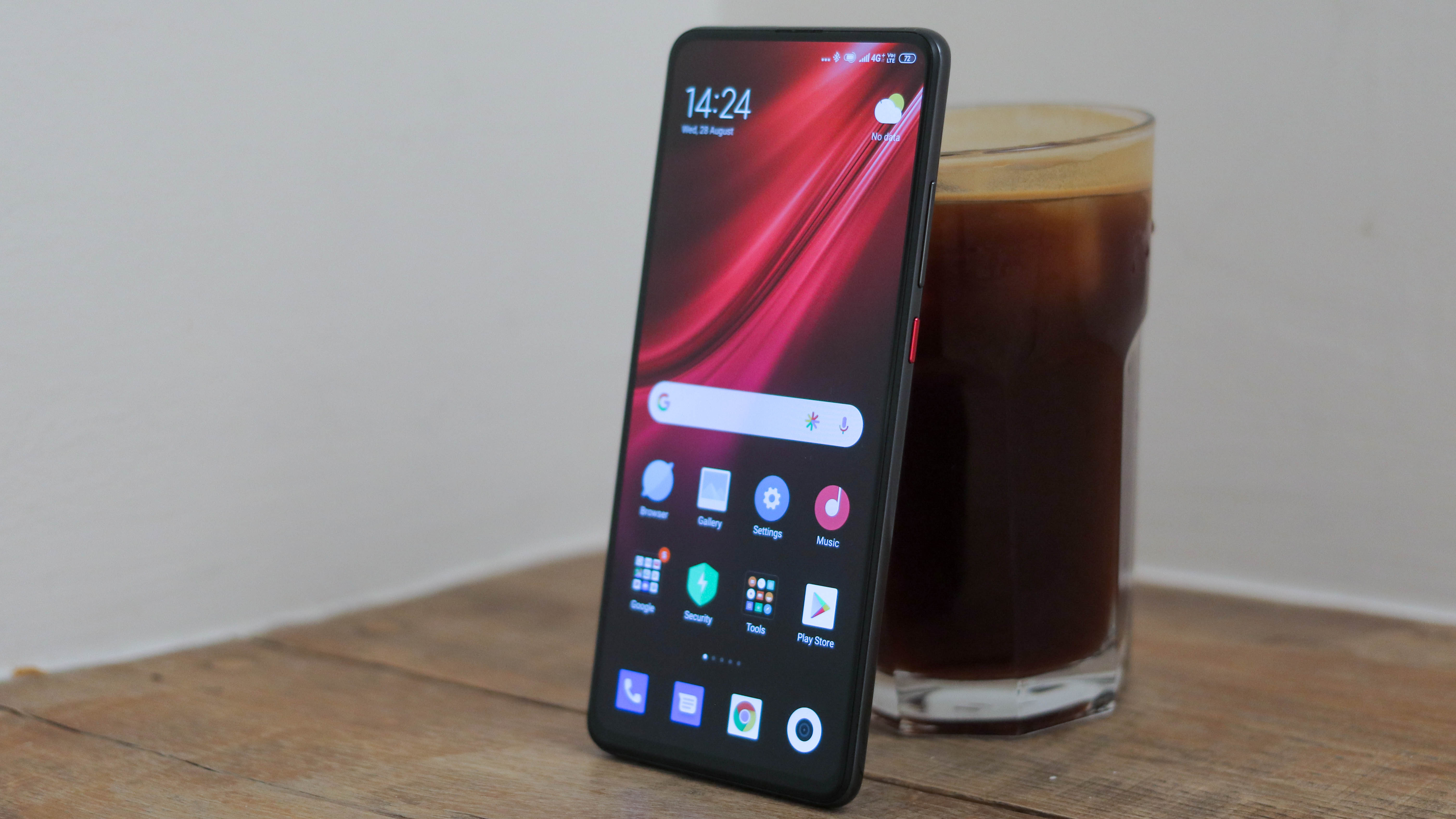
7. Xiaomi Mi 9T Pro
Flagship features at an unbelievable price
Weight: 191g | Dimensions: 156.7 x 74.3 x 8.8mm | OS: Android 9.0 | Screen size: 6.39-inch | Resolution: 1080 x 2340 | CPU: Snapdragon 855 octa-core | RAM: 6GB | Storage: 128GB | Battery: 4,000mAh | Rear camera: 48MP + 8MP +13MP | Front camera: 20MP
If you're after an impressive smartphone that offers flagship specs at a mid-range price, you can't go past the stunning Xiaomi Mi 9T Pro, which we recently awarded 4 and half stars in its review.
When it comes to design, display and power, the Mi 9T Pro has it all – and yes that does mean it has a headphone jack. Flagship features include a truly bezel-free 6.39-inch Super AMOLED display, which Xiaomi has achieved by employing a nifty 20MP pop-up selfie camera and an in-display fingerprint scanner. And there's a massive 4,000mAh battery to keep that display running for a long time.
Speaking of cameras, the Mi 9T Pro definitely delivers the goods in terms of photographic capability, sporting a triple-lens setup that boasts 48MP (main) + 8MP (telephoto) + 13MP (ultra-wide) sensors.
Best of all, it's powered by the latest Snapdragon 855 processor – the very same one that powers premium handsets like the Samsung Galaxy Note 10. Given that the Xiaomi Mi 9T Pro is less than half the price of Samsung's flagship, that's a remarkable achievement.
Of course, Xiaomi's Mi 9T Pro isn't entirely flawless – it's not waterproof, it's only got a mono speaker and its user interface won't be everyone's cup of tea, but if you're after a powerhouse device at a fraction of the price, you probably won't find a better option in Australia.
Read our Xiaomi Mi 9T Pro review
See the best Xiaomi Mi 9T Pro outright deals here
- Check out how these mid-range handsets compare to our overall top Aussie smartphone picks
from TechRadar - All the latest technology news


No comments